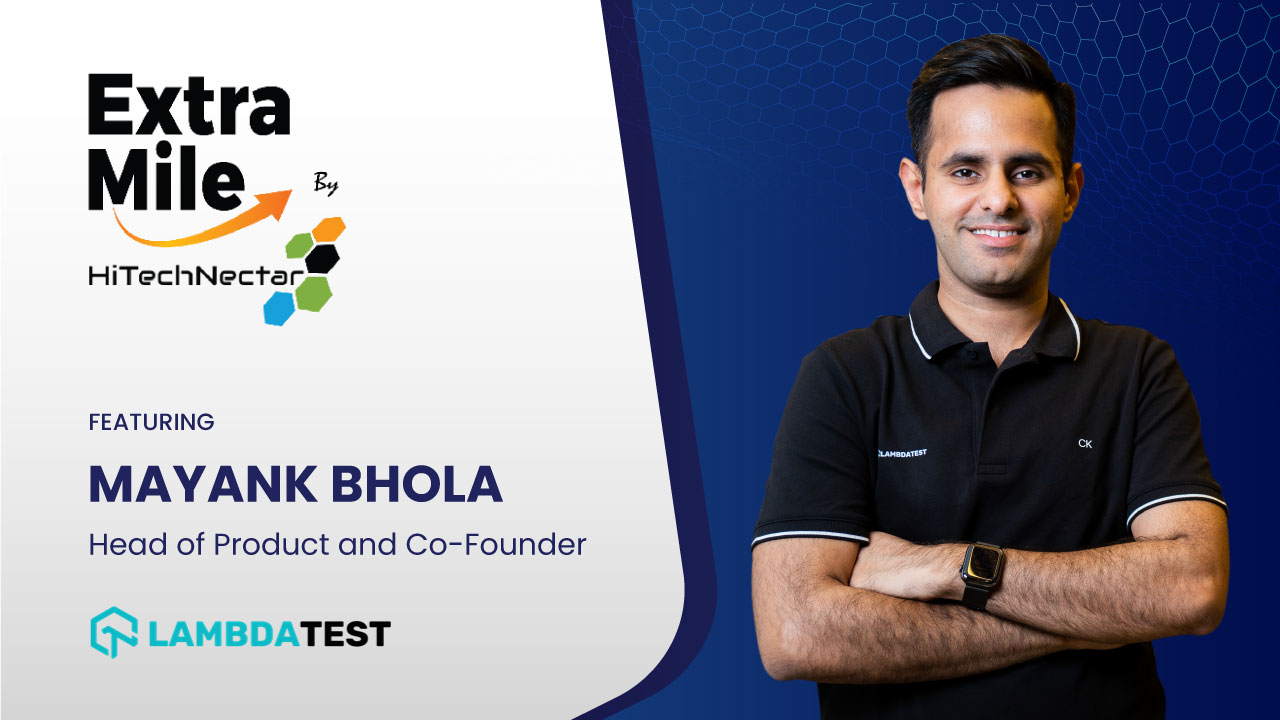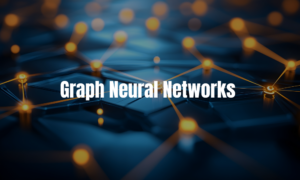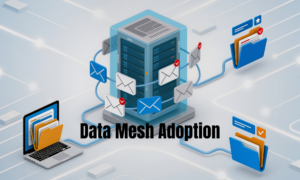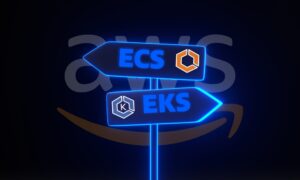Host: Hello everyone, welcome to another episode of ExtraMile by HiTechNectar, an interview series that bridges the gap between industry leaders and enthusiasts. I am your host Sayali and we’re here to discuss the latest innovations, tech trends, marketing practices, expert insights, and a lot more.
In our discussion today, we’re overjoyed to introduce Mr. Mayank Bhola, Co-Founder and Head of Products at LambdaTest, leading provider of software testing and enabling AI capabilities. With his extensive career in the tech sector and devotion to innovation, Mayank is looking after engineering and entire product development at LambdaTest. So, let’s dive into his professional milestones and attend wisdom on software testing parameters.
A very warm welcome Mayank. It’s a pleasure to have you with us today.
Mayank: Hi Sayali, thank you so much for this warm welcome. Really excited to be here talking about software industry trends.
Host: Yeah, let’s just get right into it. So, Mayank, you have been in the tech industry for almost a decade now. Could you share the core elements, all the milestones that have shaped your career so far?
Mayank: Absolutely. So, if you talk about the core elements, like even today doesn’t feel like it has been 10 years because every day the technology world is moving so fast and you get to learn about the new stuff. And then it’s a constant, it’s a competent race that you need to stay ahead of and you need to understand like how technology is being used today.
So, I think one of the core, one of the core idea that has abided me in this last decade is to continuously refreshing how technology is being used as well as being developed and trying out the, trying out the newer solutions to solve the older problems in a more efficient way.
Host: Thank you for that answer, Mayank. So, what are your major responsibilities as the Co-Founder and head of product at LambdaTest?
Mayank: So, I know the title looks shiny, but at the ground, my only job is to unblock my team members that could be an engineering product or sales or anything. I just have to make sure that I’m not blocking them first and then they are not being blocked by any other hurdles. But then yes, a lot of time also goes into researching the newer products in the market, the newer technologies and the newer researchers as well.
And as well as looking at how customers are using our product and what feedbacks they are sharing and using all these inputs to decide what we have to do the next. So, it majorly revolves around these activities. But I think the most challenging and most enjoyable part is to actually solve customers’ problems.
Because at LambdaTest, I think what we truly believe is about solving customers’ problems with technology and technology is of no use if it’s not actually going out and solving a problem.
Host: Going forward, why is software testing so important? How does it contribute to simplifying software development and deployment processes?
Mayank: Sure. I mean, software testing is definitely important, but in order to give you an analogy, recently, the world was faulted because Microsoft systems all across the world were broken due to one security patch. And I think that event just helps me bring back the idea to anyone in the conversation, why software testing is important, because today’s software is being developed at a very high velocity, like more than 10x as it used to be 10 years back.
And with that velocity, it’s much more important now to have a guardrail that validates at whatever we are pushing out in the market is actually not, first of all, introducing a regression in what has already been working so far. And secondly, that the intended new functionality works in the way that everybody is expecting it to. So, I mean, testing becomes way more important as your growth grows because now you have two different responsibilities.
One is making sure that whatever is out there running should continue working as it is. And the newer thing that you’re adding on top also are working in some kind of acceptable form. So, software testing is, I think, as I think the world also recognizes now that it shouldn’t be an activity that is done after something is developed.
The testing should start from the point of the planning itself, where development and testing goes hand in hand, because testing early saves a lot of time. And I think this is why we are, as a LambdaTest, solving a critical problem in that entire software delivery chain, where we help our customers and our partners to test frequently, test easily and test smarter.
Host: Absolutely. So testing is very valid at every stages of software building. So, what key challenges do you believe generally arise during software testing and how do you try to tackle them?
Mayank: Awesome. I think the last six years of LambdaTest, we have been solving the same problem that testing seems to be a difficult activity because of the operational requirements. First of all, having a robust testing infrastructure in place.
Secondly, having a system that allows you to continuously perform testing without stopping your workflows. Third is that giving you enough insight so that you can work upon it. And finally, how does a platform help you decide and plan what to test?
So, at LambdaTest, we are solving all these four phases of different testing, like starting from planning to authoring. Recently, we added our own world’s first end-to-end software testing agent. We have our own robust testing infrastructure where users can run the millions of the test cases.
And finally, extracting out key insights from these test runs so that you can figure out what to fix next or how to go about your current software release. So, if you think about this entire software delivery chain, the majority of the bottleneck comes in where the infra on which you’re running a test itself is not stable and it’s not highly scalable in that form. And at LambdaTest from the inception, we have been working really hard to make sure that the end infrastructure that we provide to you meets your demand, is highly available, is secure, and as well as resilient because the testing infrastructure should be up and running so that your customers’ pipelines are not choked and are able to release your software with high velocity.
Host: Absolutely.
As we all know, AI is such a hot topic right now. How has AI transformed your software testing tactics and what are the chief benefits of implementing such technologies into software testing?
Mayank: Sure. So yes, AI is definitely touching all aspects of our life, but specifically in software development, every developer today cannot deny of using GitHub Copilot or ChatGPT to generate the code snippets. And then that is requiring a huge innovation on the testing side as well because developers are generating code at the 10x of the velocity they were doing before because they are more equipped.
And that brings up the challenge that with more software coming in, the pipelines that were safeguarding the production needs to get updated as well. So, with more number of test cases, the testing platform should be resilient and highly scalable as well and majorly aware of this AI generated code because now you cannot just rely on the test cases that humans are coming up. The software systems that are using AI should also be aware of the kind of errors that AI creeps in because that code is being pushed without getting tested.
So specifically at LambdaTest, we are trying to add those intelligent layers that also checks for the cases that AI introduces inside the code being generated out there and then obviously increasing the coverage area of what has to be tested because today, not just functional, accessibility, security and performance testing are very crucial because everybody is used to work in a fast paced mode. Everybody expects that now they have 5G devices, their data should load immediately, the operations should be performed immediately and at very high speed. So functionality wise, definitely it’s important to test your application, but it’s more crucial now to make sure that the application is accessible, is highly performant and as well as secure.
So, we are adding lots of different utilities out there and our capabilities in our platform that gives the overall picture of how software should be tested and what are the critical parts of the bugs that everybody should focus on.
Host: So recently, LambdaTest hosted the third edition of Test2 Conference. Can you share the key highlights and insights from the event?
Mayank: Absolutely. I think one of the key highlights is that in almost every single topic, they mentioned was AI was profound. Every single topic that our community was discussing had some element of AI introduced into it.
And it’s really good to see how communities are coming up with innovative ideas in order to use this new kind of technology. Some folks are using AI to generate data for their data driven testing. Others are using to highlight the importance of validation of AI in testing and then how to generate good user stories.
But then one of the other good parts is that the collaboration between the software testing industry is really excellent. It’s coming up in some years and the use of technology and tools is increasingly becoming more popular out there because before 2020, we didn’t see a huge influx of different toolings in the plugins out there. But as you can now notice, the velocity at which the newer technology is coming in the market is really profound.
So, everybody is trying to stitch together different workflows that helps make their lives easy. And it’s so exciting to see them various different views in which this can be done.
Host: Absolutely. Such events are certainly very beneficial for the tech practitioners, enthusiasts, everyone. So LambdaTest has served over 2 million testers and developers across 500 companies in 130 nations.
How do you ensure seamless coordination and standard user experience while providing services to your clients? How is the process streamlined?
Mayank: Right. I don’t say that we had this in mind on how to do that. We were fortunate enough to get positive and critical feedback from our customers.
And our customers have actually shaped up the robust processes that we have set up as of now. And every day it’s a new learning because every day we get on course with customer and get to see how our product is being used in different settings, in different ways and in different processes. So that kind of continuous feedback is the only key where we keep on refining the processes.
And we have seen that none of the processes that we have set up have battery tested for more than a quarter or like four or five months because of the way in which the new customers are onboarding that they keep challenging us to change the ways that we think of delivering the software, think of providing in the user experience and various different features out there. So it’s basically more of a collaboration between us and the partners and our and our customers. And one of the kudos I would like to give to our customer engineering team because these guys work really hard to bring back the crude feedback and the actual and the actual user experience problems that our customers are facing that helps us to enhance our platform almost every day.
And then talking about the variance in different kind of customers. Yes, we are really fortunate to have having served these kind of customers who vary from like different parts of the world, different time zones, different technologies. So having them all at on board at LambdaTest is definitely making a difference in the way we think of our product development today because it has to be accessible.
It has to be globally compliant and has to work in all different parts of the world. So, yes, we really put in a lot of effort in here, but all kudos to our customer engineering team and our customers who take out their time to provide us with the valuable feedback.
Host: Lastly, yet importantly, what is the future of software testing? Which trends do you think will dominate the industry in the coming years?
Mayank: Right. No doubt that software testing is going to be a collaborative collaborative session between humans and the AIs. There’ll be definitely some part which AI will be helping us do more efficiently.
And I think within software testing, the now time has come where the humans will be focusing more on the what parts of the testing where they will think of the areas that should be tested and operationally AI will go ahead and do that task for them. So it’s majorly about how you think of starting of the evolution of testing and how do you plan your activities around it? How do you use AI to explore newer areas that were untested before and driving the next set of decisions based on the data that is being collected?
Because today, if you look up with advent of a lot of analytics tool, it’s becoming very easy for anybody to look in what’s happening on their platform and the rich data that is being generated at the runtime. So, humans as well as the AI together can actually consume this data in like much more intensive manner to come up with the next set of action that they should take. So, I think software testing in future is going to be heavily driven by AI is doing a lot of stuff for us while we sit there and actually think and think deeply about the area that has to be tested and refined continuously.
Host: So much for that answer, Mayank. So just to end this on a fun note, when you’re not fighting in the tech world, how do you like to spend your leisure time? Like what do you do to unwind?
Mayank: Well, that depends on the time of the day as well as the time of the year. But usually it’s about exploring new pizzerias around the city. I’m really fond of having pizzas as well as like deconstructing what goes on to building that pizza.
So, yes, for me, especially when I’m not working, it’s about either eating one or like baking one.
Host: Amazing. So that was a wholesome conversation covering software testing, its challenges, significance of AI and LambdaTest approach to serve its clients. Thank you so much, Mayank, for sharing your knowledge with us.
It was really exciting to learn about the critical aspects of the software testing industry.
Mayank: Thank you so much. Thank you so much again. It was a pleasure talking to you.
Host: Thank you all for tuning in. I’m Sayali, your host, signing off. Stay tuned for our next episode of ExtraMile by HiTechNectar. See you soon.
Explore Our Other Insightful Interviews:
Revolutionizing Conversational AI with Daniel Wagner, Chairman and CEO of Rezolve AI | Podcast Ep. 7

























